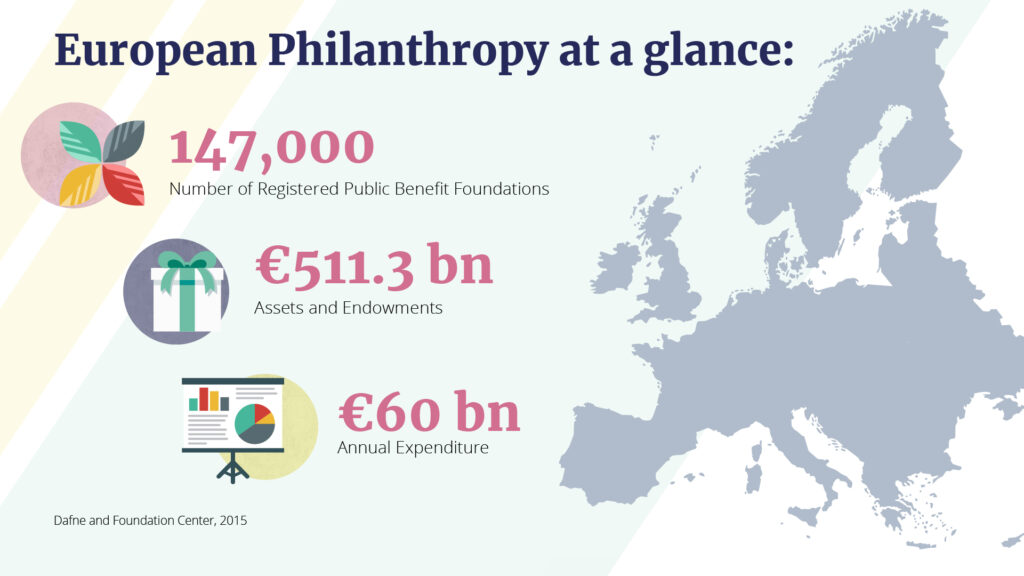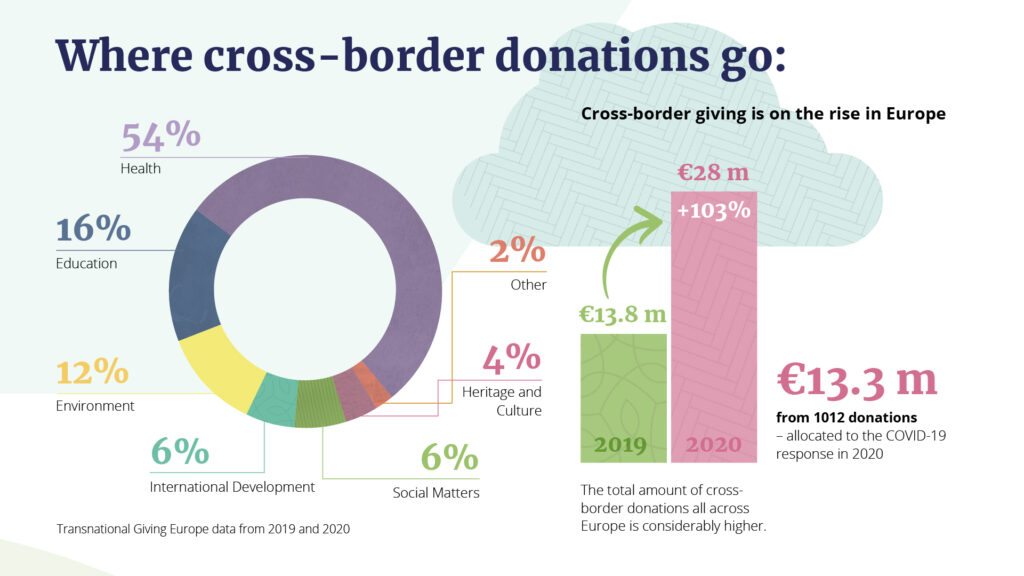About Philanthropy
What philanthropy is and how it works.
Philanthropy refers to foundations, corporate funders and individuals using their own financial and non-financial resources for the public good. Philanthropy supports programmes in areas from which we all benefit, such as education, health, science, environment, culture and international development. It works alongside other civil society organisations, complementing government and private sector initiatives. A unique characteristic of philanthropy is its ability to respond in real time to the critical challenges facing our societies, while simultaneously taking a longer-term view.

The economic contribution of philanthropy is significant. There are more than 147,000 philanthropic organisations in Europe with an accumulated annual giving of nearly €60 billion. The combined assets of European public-benefit foundations is over €511 billion. Philanthropy is part of the wider civil society. According to the 2020 report “Taxation and Philanthropy” by the OECD and the University of Geneva, based on a cross-country analysis, the non-profit sector typically contributes between 4.5 and 5.5% of GDP. Furthermore, the European civil society sector engages an estimated 28.3 million full-time equivalent workers, both paid and volunteer, 2 in the 27 EU Member States as well as the UK and Norway. Thus, the European civil society sector is the third-largest employer in Europe after manufacturing and trade.
Philanthropy’s added value
Philanthropic organisations’ added value is their ability to leverage their reach, ideas, independence and resources to effect positive change.
Philanthropy’s REACH
Philanthropic organisations are embedded in local communities across Europe and at the same time are involved in regional, national and international endeavours. They operate on many levels as best benefits the needs and objectives of the people, programmes and ideas they support. The diversity of the sector in Europe allows for fresh ways of thinking and doing things, capitalising on different models, lenses and geographic perspectives. Acting as both convener and catalyst, philanthropy connects with governments, civil society, business and other stakeholders, thus facilitating cooperation and enabling joint solutions.

Philanthropy’s INDEPENDENCE
The independence and freedom of philanthropic organisations allow them to make decisions and deliver change in unique ways. While working alongside corporations and governments, foundations can also support less popular causes, take risks and invest in initiatives where social rather than financial profit is the primary goal. This autonomy gives philanthropy the ability to take a long-term view and underpins its sustainability.
Philanthropy’s IDEAS
Philanthropic organisations promote ideas and innovation, using their ability to encourage and support new thinking and approaches to effect positive change in ways that complement public action. They can pilot innovative programmes and share successful initiatives that governments can take up and scale. They encourage civic engagement and empower the voice of European citizens.
Philanthropy’s RESOURCES
To effect positive social change, philanthropic organisations draw on accumulated experiences and funding expertise across many disciplines, sectors and countries. They share ideas and give their financial resources, time and knowledge to the projects, programmes and partnerships they engage with. Philanthropic support, whether financial or otherwise, offers more flexibility to civil society organisations. Philanthropy in Europe increasingly operates across borders and in collaboration with international partners.
